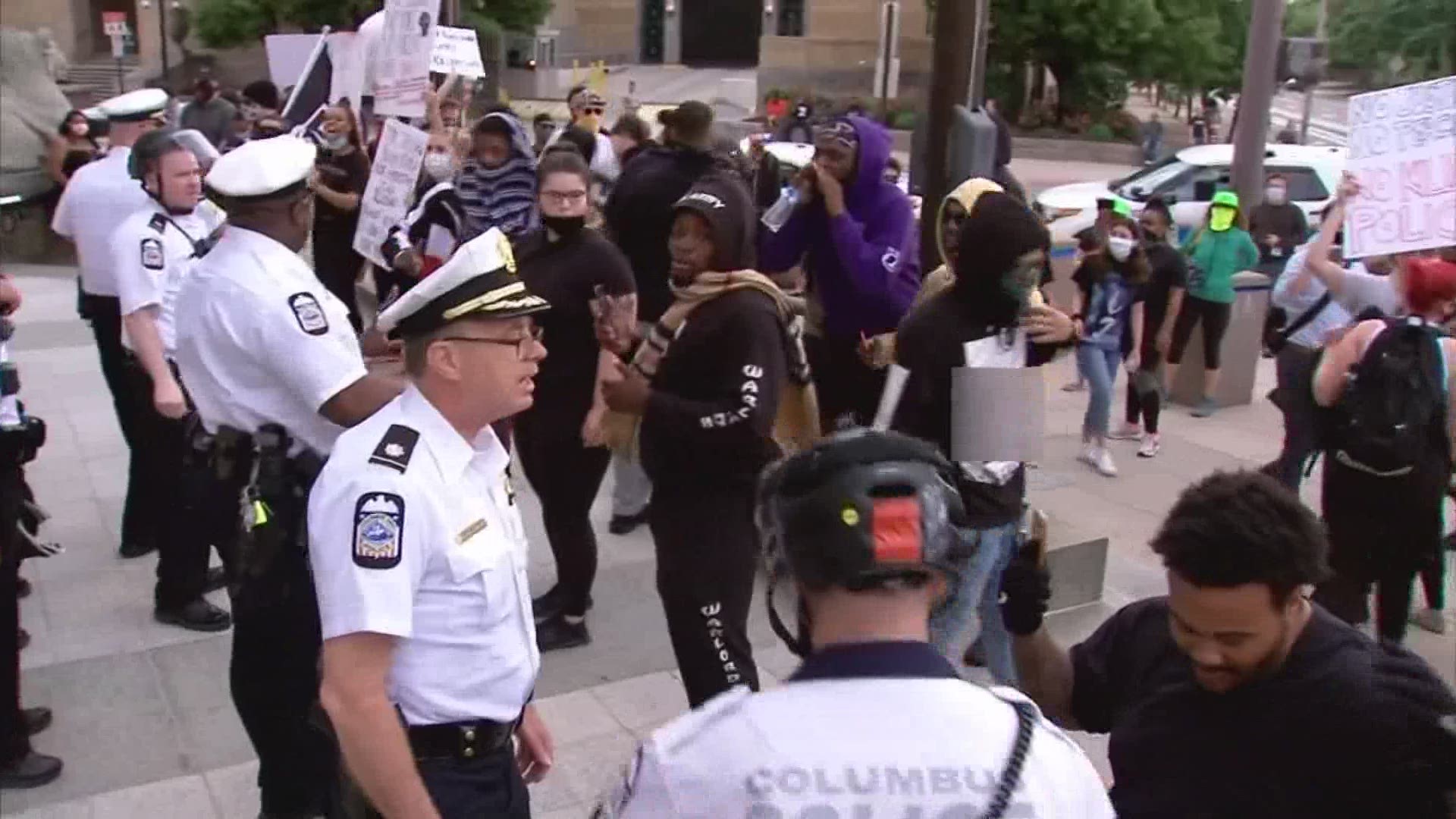It's been months since protesters took to the streets of downtown Columbus.
The conversations those demonstrations sparked about police involvement in the communities continues.
In a conversation on Wednesday, two former Columbus police chiefs and two other high ranking police department officials sat down together to talk about the protests, a civilian review board, the mayor and more.
“The reason I am here, to speak for them who can't speak for themselves,” said former Columbus Police Chief Kim Jacobs.
The group got together to talk about what they think what could have been handled better during the protests.
“They are accused of being racist, including by city officials, and of being murderers. They are more than a little concerned with the lack of support,” Jacobs explained
Former Police Chief Walter Distelzweig says he would have handled protesters drastically different.
“There would have been a lot more arrests. That mob mentality, you have to put a stop to it,” Distelzweig said.
“It's not really just one person in city hall, it's a failure of leadership to actually trust what is going on with the police that they know what they are doing,” Jacobs said.
The formers chiefs and commanders talked about everything from the need of the city and police chief to communicate with the media and citizens, to how they feel about a civilian review board and what it should look like.
They all say they would have all been fine working with a civilian review board.
“We believe that civilian review members must do police ride-alongs. You learn so much about what it is like to be behind a steering wheel and being sent on calls for services,” Jacobs said.
“They should be mandated to go to the citizen police academy. They should do a ride-along, in my mind, every quarter,” Distelzweig said.
At the end of the day, the chiefs say Columbus police must continue to evolve, as they always have.
They say leaders need to focus on what is truly important to citizens.
“We have city councilmembers talking about the number of helicopters we have, you know what you ought to be talking about? How many shootings have we had last night and what are we doing about it?” Distelzweig said.
We reached out to Columbus Mayor Andrew Ginther about what the chiefs had to say. In a statement, he said:
"I support police officers, and I believe we need reform. The two are not mutually exclusive. I am committed to civilian oversight and to evaluating what policing means to the community."
At the conclusion of the discussion, Ginther sent the following message to city employees:
The last few months have been a time of unprecedented challenges for our community. We are on the eve of a national election that has polarized our nation and state, in the midst of a summer that has seen a surge in gun violence that continues to plague cities across America. The ongoing impact of COVID-19 on our collective health and wellness, our families and the economy and a national reckoning over racial injustice and police brutality have borne the call for police reform. From this has also come the narrative that holding police accountable when they abuse their power and violate public trust demonstrates a lack of support for law enforcement.
That idea is simply false.
Support and reform are not an either or proposition. In fact, holding bad cops accountable is critical so we may support the vast majority of officers who are committed to keeping our neighborhoods safe. I fully support the Columbus Division Police, our officers and their families. I also believe we need to make significant change within the Division. The two are not mutually exclusive.
We launched independent investigations into police misconduct because, again, we must be able to hold police accountable if they violate their oath and the rights of others. Support does not negate accountability.
We are the only major city that does not have some kind of civilian oversight of police – and I am committed to changing that. Residents will have the opportunity to vote in November on adding a civilian police review board to the charter of our city. We seated a diverse work group – including retired police officers, activists and attorneys – to help define what that review board will look like, and to ensure it represents national best practices and reflects local input. And, most importantly, that we are able to support good officers and root out the bad.
We are also reviewing what policing means in our community. Over the years, police have become responsible for calls for mental health, drug addiction, truancy and other social issues. We have started to find ways to reduce the burden we place on law enforcement, to allow social workers and health professionals to do the job for which they were trained, and to allow police officers to serve and protect.
I support our police, and I believe we need reform.

